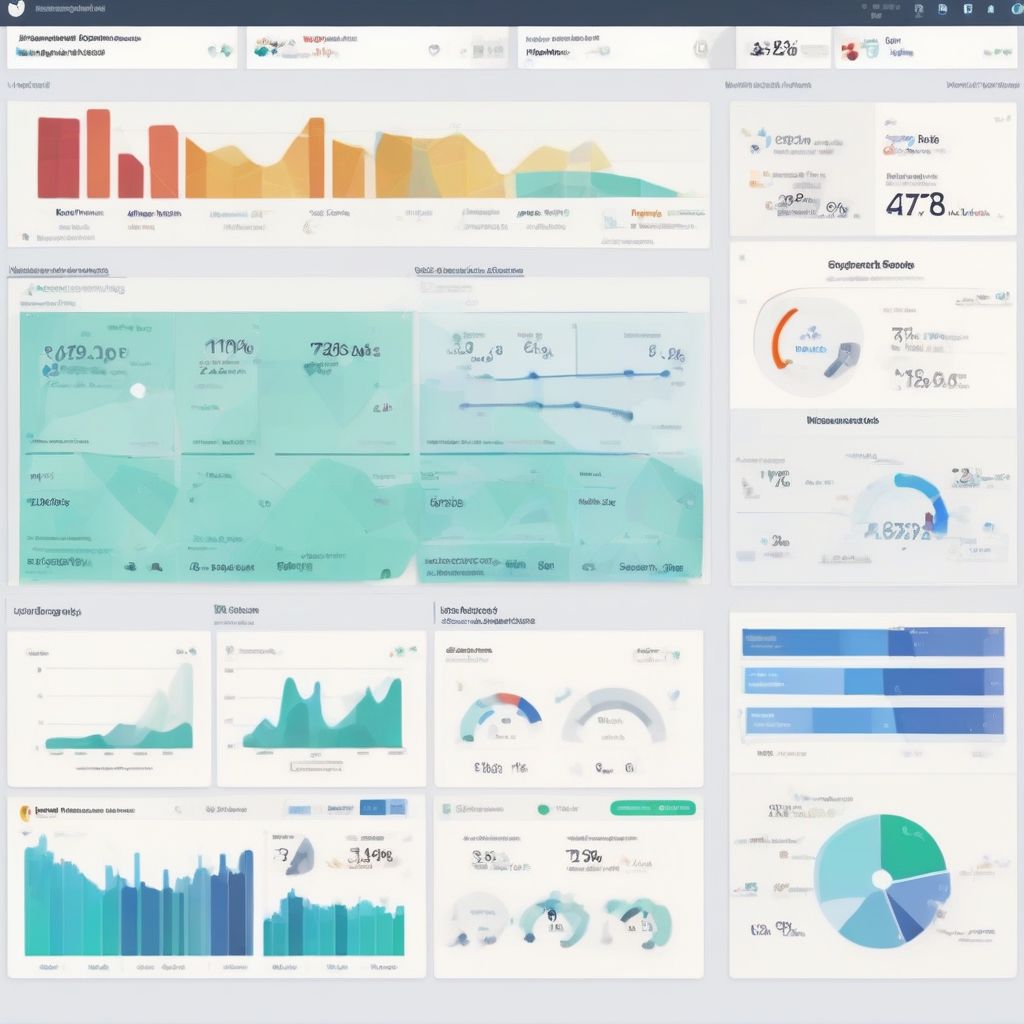Imagine this: you’ve just launched a new digital marketing campaign for your healthy meal prep business. You’re excited about the potential clients you’ll reach and the positive impact you’ll have on their lives. But how do you know if your efforts are actually paying off?
That’s where tracking and measuring your digital marketing effectiveness comes in. Just like tracking your macros or monitoring your fitness progress, analyzing your marketing data helps you understand what’s working, what’s not, and how to optimize for better results.
Why Tracking Your Digital Marketing Matters
As a nutritionist and meal prep coach, you understand the importance of data-driven decisions. The same principle applies to your marketing efforts. Tracking key metrics provides valuable insights that allow you to:
- Justify your marketing spend: Demonstrate a return on investment (ROI) and make informed decisions about budget allocation.
- Optimize your campaigns: Identify areas for improvement and adjust your strategies based on real-time data.
- Understand your audience: Gain deeper insights into your target audience’s behavior and preferences.
- Achieve your business goals: Whether it’s increased website traffic, more leads, or higher sales, tracking helps you stay on track.
Key Metrics to Track for Digital Marketing Success
Now that you understand the “why,” let’s dive into the “what.” Here are some essential metrics to keep a close eye on:
1. Website Traffic Metrics
Your website is your digital storefront, so understanding how people interact with it is crucial.
- Traffic Sources: Discover where your visitors are coming from (e.g., organic search, social media, email marketing).
- Unique Visitors: Track the number of individual users visiting your site.
- Page Views: Monitor the total number of pages viewed, indicating user engagement.
- Bounce Rate: A high bounce rate (people leaving after viewing only one page) might indicate issues with your site’s design, content, or user experience.
- Average Session Duration: Gauge user engagement by tracking how long visitors stay on your site.
Tools: Google Analytics, Google Search Console
2. Social Media Metrics
Social media platforms offer a wealth of data to analyze your performance.
- Reach and Impressions: Understand how many people are seeing your content.
- Engagement (Likes, Comments, Shares): Measure how actively your audience interacts with your posts.
- Follower Growth: Track the growth of your follower base over time.
- Click-Through Rate (CTR): Monitor how often users click on links in your social media posts.
- Conversions: Track actions taken on your website that originated from social media, such as signing up for your newsletter or booking a consultation.
Tools: Platform-specific analytics (e.g., Facebook Insights, Instagram Insights), social media management tools like Hootsuite or Buffer.
 Social Media Marketing Analytics
Social Media Marketing Analytics
3. Email Marketing Metrics
Email remains a powerful tool for nurturing leads and driving conversions.
- Open Rate: Track the percentage of subscribers who open your emails.
- Click-Through Rate (CTR): Monitor how often subscribers click on links within your emails.
- Conversion Rate: Measure how many email recipients complete a desired action (e.g., making a purchase, downloading a resource).
- Unsubscribe Rate: A high unsubscribe rate could signal problems with your email content or frequency.
Tools: Email marketing platforms like Mailchimp, ConvertKit, or Constant Contact.
4. Paid Advertising Metrics
If you’re running paid advertising campaigns, tracking these metrics is essential:
- Cost-Per-Click (CPC): Monitor how much you’re paying for each click on your ads.
- Click-Through Rate (CTR): Measure the effectiveness of your ad copy and targeting.
- Conversion Rate: Track how many ad clicks lead to desired actions on your website.
- Return on Ad Spend (ROAS): Calculate the revenue generated for every dollar spent on advertising.
Tools: Google Ads, Facebook Ads Manager, platform-specific analytics dashboards.
Tips for Effective Digital Marketing Measurement
- Set clear goals: Define what success looks like for your specific business objectives.
- Use a combination of tools: Utilize a mix of free and paid tools to get a comprehensive view of your marketing performance.
- Track consistently: Regularly monitor your metrics to identify trends and make timely adjustments.
- Focus on the metrics that matter most: Not all metrics are created equal. Prioritize those directly aligned with your business goals.
- Don’t be afraid to experiment: Digital marketing is all about testing, iterating, and continuously improving.
Conclusion
Tracking and measuring your digital marketing efforts is not just a technical task; it’s about empowering yourself to make data-driven decisions that fuel your business growth. By closely monitoring the right metrics and adapting your strategies accordingly, you’ll be well on your way to achieving your marketing goals and expanding your reach as a nutritionist and meal prep coach.
Ready to take your digital marketing to the next level? Share your biggest measurement challenge in the comments below!
[amazon bestseller=”digital marketing analytics”]
